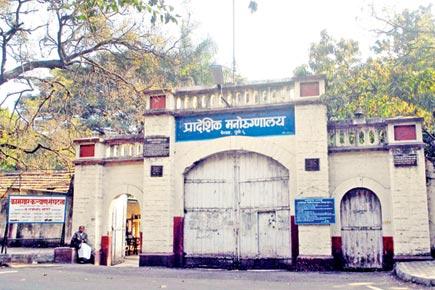With dismal details about increased fund allocation and delayed application of the new mental health Bill, professionals wonder when the new law will be a reality


The Regional Mental Hospital in Pune is the state's largest, with 2,500 beds. FILE PIC
ADVERTISEMENT
Despite the Centre passing the new Mental Healthcare Act, its implementation in Maharashtra remains a matter of ill health. There’s little clarity on funding for mental health programmes from the central government, and the state already has dismal fund allocation for them. Worried mental health professionals are wondering if the new Act will ever be a reality.
The Act is yet to be officially given to the state for implementation. Without required infrastructure in place and lack of public awareness, the Act might prove to be redundant. The state allocates a measly Rs 100-200 crore for mental health, of which a major chunk is used for the salary, upkeep and day-to-day expenses of hospitals. As per the new Act, over Rs 1,000 crore will be needed for the smooth functioning of mental hospitals, say experts.
Maharashtra has four regional mental hospitals — Pune is the largest with 2,500 beds and approximately 1,700 patients, followed by Thane with 1,800 beds and 1,400 patients, Nagpur with 800 beds and 500-odd patients, and Ratnagiri, which has 365 beds and around 200 patients.
Months to a year
Speaking to mid-day, Dr VR Bhailume, medial superintendent at the Regional Mental Hospital, Ratnagiri, said, "The Mental Healthcare Act, 2017, has been introduced with a lot of amendments to the earlier Mental Health Act, 1987. It is yet to be implemented in any of the state’s mental hospitals, and will take at least a few more months to a year. Presently, we are following the old Act."
Dr Sadhana Tayade, joint director, health services, Maharashtra, confirmed the same and said, "We are in the process of implementing the new Act, and it will take a few more months to be fully put into practice."
Pithy allocation
According to officials attached with state’s Directorate of Health Services, "For 2016-17, the total budgetary provision for public health was around Rs 9,540 crore, funded by both state and central governments under the national health programme. From this budget, approximately Rs 5,095 crore goes towards planned schemes, while Rs 3,851 crore is towards the non-planned schemes, completely budgeted by the state government. Around Rs 594 crore goes towards district health programmes. On an average, the state budget allocation for mental health programmes is quite a small portion of Rs 100-200 crore."
Speaking to mid-day, Sanjay Kumavat, senior psychiatrist and former superintendent of Thane Regional Mental Hospital, said, "The new Act is not clear about the budgetary provisions and allocation of funds from the central and state governments. Also, as per the new Act, there needs to be affordable and accessible mental health outpatient and inpatient services in every district. District mental health review boards also need to be set up in each district, with required manpower, as the Act states that a patient should be referred before the judiciary body within 24 hours if it’s a woman and three days for a man."
Not in the curriculum
"We do not have rehabilitation homes, community-based rehabilitation centres, vocational training, day-care centres, etc. Moreover, there is no clarity on introducing the new Act in the curriculum for psychiatrists, psychologists, paramedical staff, etc," said Dr. Kumavat, adding, "Interestingly, the new Act allows alternative medicine for treating and examining mental health cases, which wasn’t the case before. Law enforcement agencies also need to be trained in handling such patients. Instead of looking at them as a nuisance, they should be given the required care and protection."
Dr Kumavat has a word of caution though. "If the government is keen to implement the Act and wants to see positive results, then it should implement it in phases. In the first phase, the state should make provisions to provide all support staff and required infrastructure, and later, go for implementing the functioning norms, or else, such Acts will be of no use. Without public awareness, its fate will be like the Domestic Violence Act or Maintenance and Welfare of Parents and Senior Citizens Act, which is in force but seldom helps those in need."
Rs 1k-cr Amount needed for the smooth functioning of mental hospitals
Rs 100 cr Amount the state government allocates for mental health
 Subscribe today by clicking the link and stay updated with the latest news!" Click here!
Subscribe today by clicking the link and stay updated with the latest news!" Click here!






